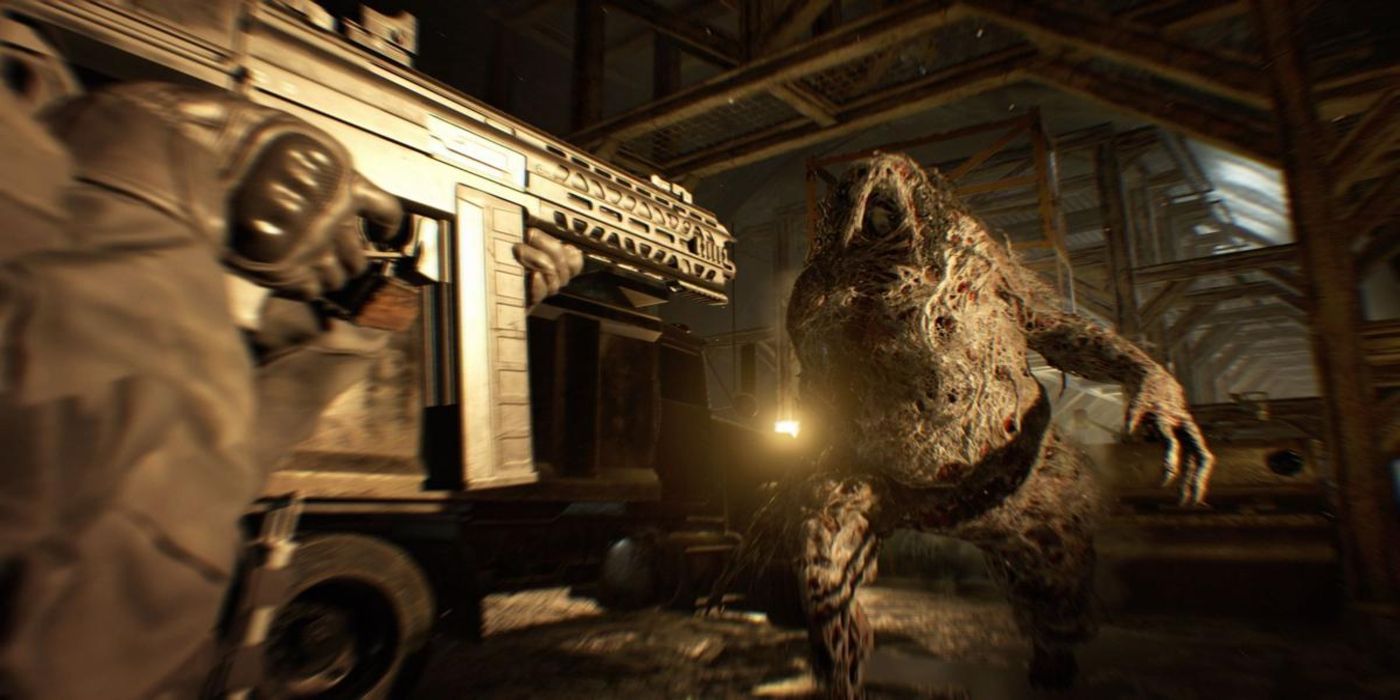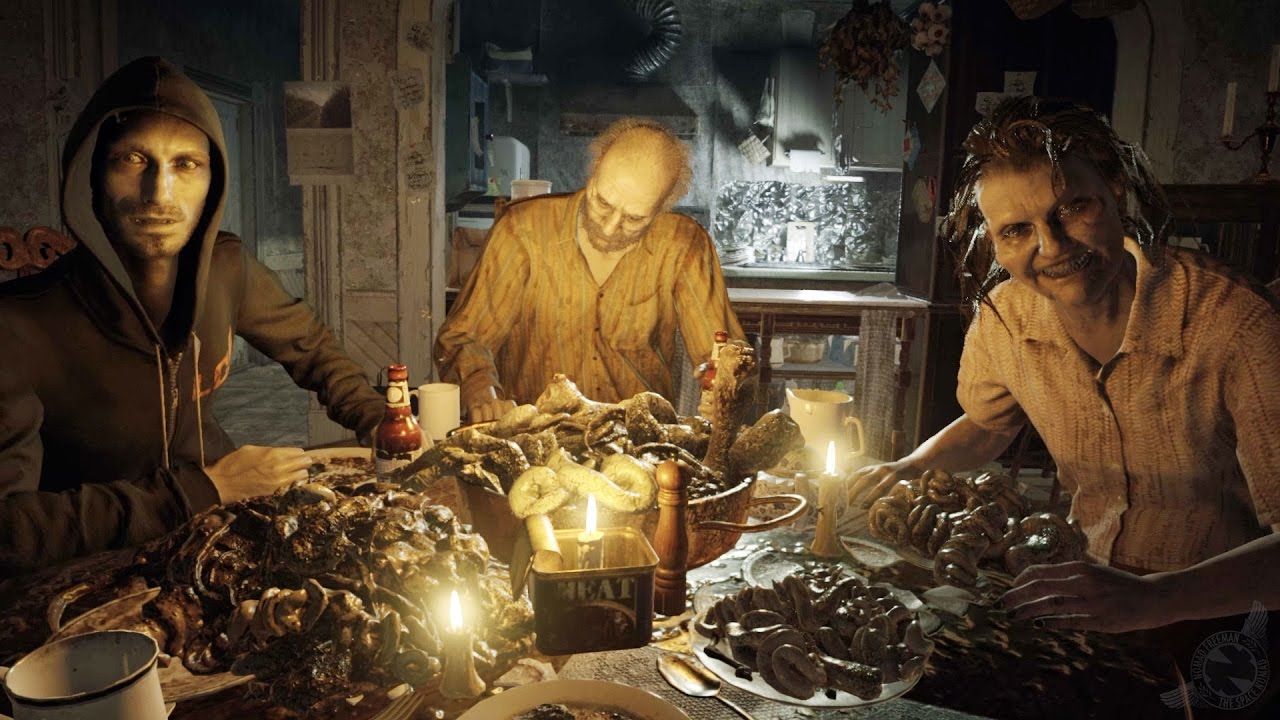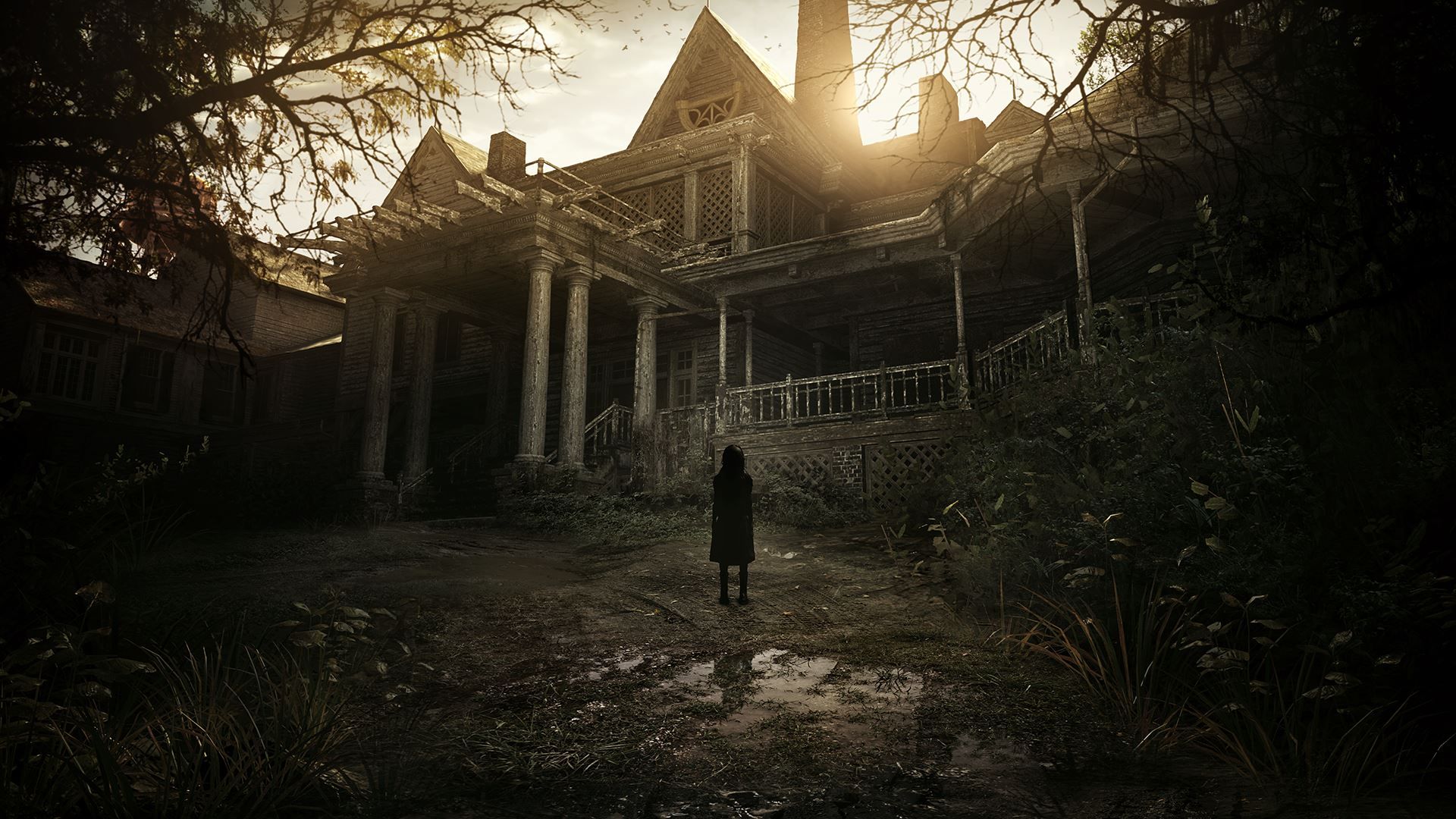As the seventh-generation of consoles slowly gave way to the eighth and serialized releases like those in the Call of Duty and Battlefield series dominated headlines and ate up teenagers’ allowance money, niche genres—horror, in particular—seemed to fall by the wayside. With once-mainstay series like Dead Space, Resident Evil, and Silent Hill fading into irrelevance, it looked as if the future may be dominated entirely be titles with six-figure budgets, focused-grouped, homogenized plots and settings, and shoehorned in multiplayer and microtransactions. Even relatively successful releases like Amnesia: The Dark Descent and Outlast felt like irrelevant outliers in the face of most titanic AAA games… and then came Resident Evil 7.
Billed as a return to form for a collection of games that had gone way off the rails, RE 7 was initially met with a pretty sluggish, tepid reception—saleswise, at least, and that’s really only from a certain point of view. Becoming Capcom’s fifth highest-selling game of all time fourteen months after its initial debut, it's hard to argue that the game failed objectively. However, at that time, its sales were still dwarfed by the fifth and sixth Resident Evil entries—two of the most divisive titles in the series—as well as by the gargantuan 7.5 million units Monster Hunter World managed to shift. While it may have seemed like a success for a genre once considered to be down-and-out, Capcom likely saw it as a bit of a flop, as, with little room for recurring spending opportunities outside of some tacked-on DLC offerings, the 5.1 million units the game had sold at that point still wouldn’t equate to major commercial success.
Yet, Resident Evil 7 and the 2019 remake of the original game’s sequel would go on to inspire something of a horror game renaissance. Partially inspired by 2014’s legendary Silent Hills demo—something to which RE 7’s opening hours have often been compared—horror gaming has come back in a big way. RE 2 and RE 3 made a significant impact on the gaming community, and, alongside horror-influenced titles like The Evil Within 2, Little Nightmares, Man of Medan, and more, it seems as if the horror genre has been re-animated to some extent.
As of August 2020, Resident Evil 7 has managed to push past its previous entries and claim the second spot on Capcom’s highest-selling list. Though it’s already seen plenty of discounts after its three-and-a-half years on the market, a total of 7.9 million units sold remains a significant marker for a franchise once considered to have been totally destroyed. At the moment, the future of Resident Evil seems particularly bright, as a new, next-gen iteration of the convoluted zombie storyline is due out early next year in the form of Resident Evil: Village, and rumors surrounding a potential total remake of Resident Evil 4, the most beloved entry in the entire series, will likely keep fans interested for quite some time.
Major game publishers like Activision and EA may continue to advance the narrative that horror titles aren’t worth taking a risk on, especially when anything with Call of Duty or Madden brand is bound to sell gangbusters, but Resident Evil 7 now serves as a definite reminder that horror games can be both commercially and critically successful, and we’re very excited to see what’s next for Capcom’s creepiest IP.



